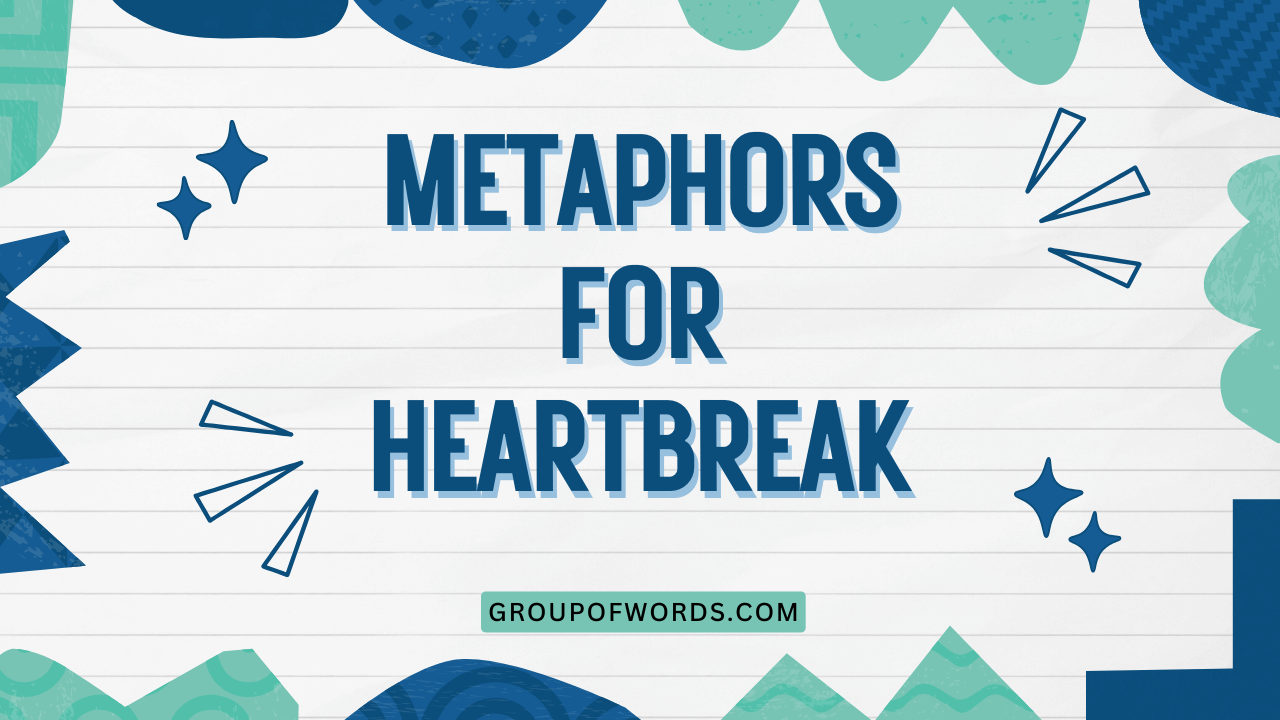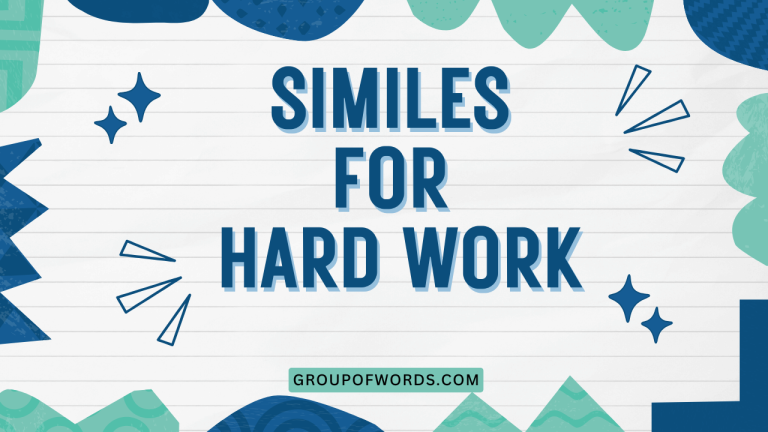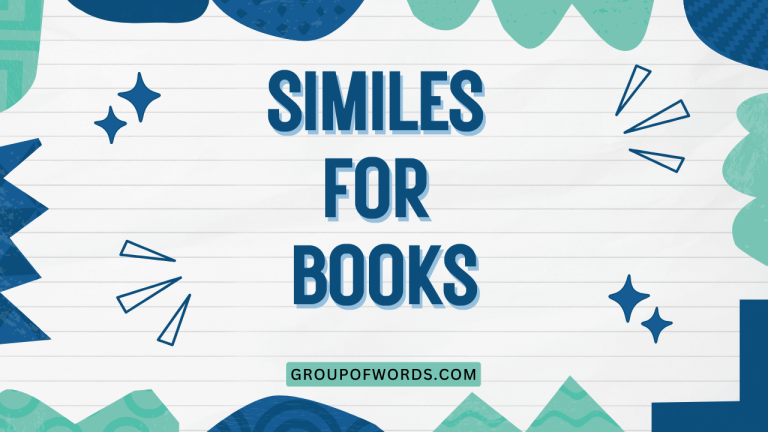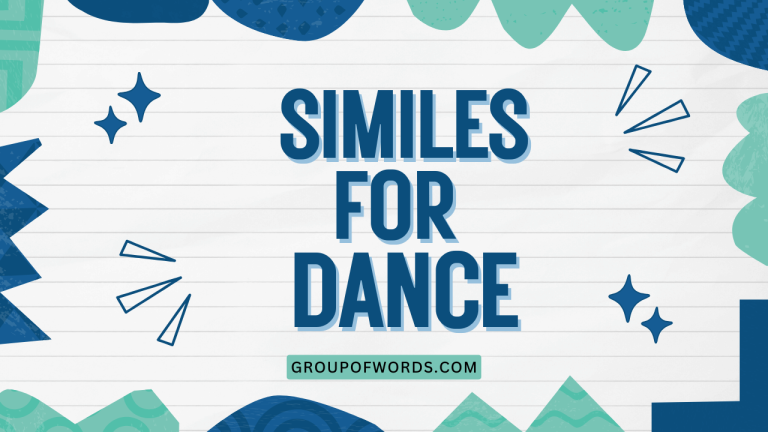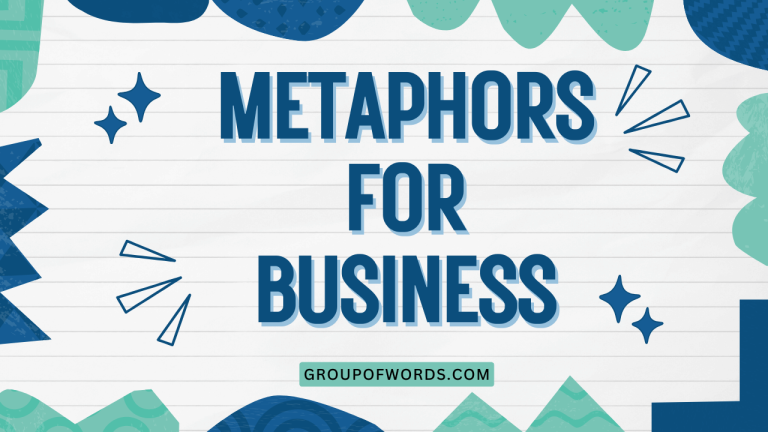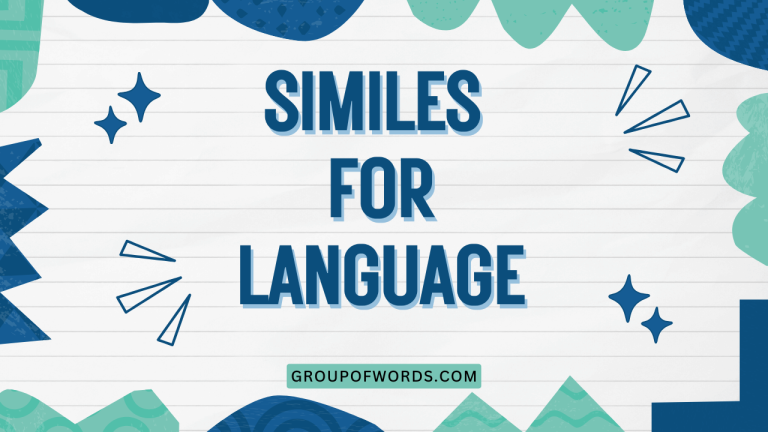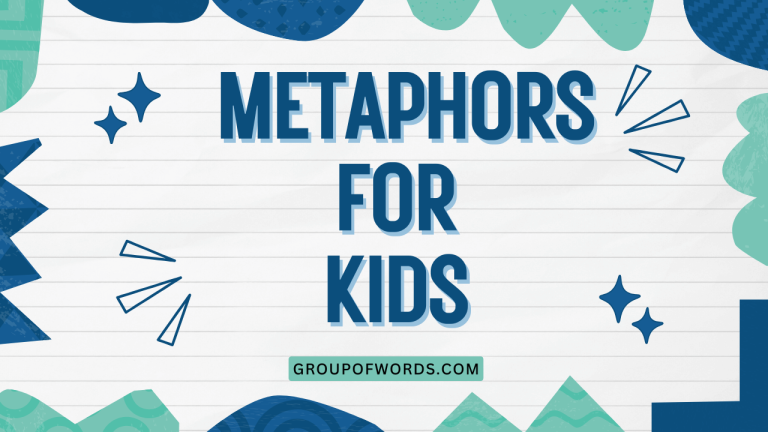Heartbreak Metaphors: A Grammatical Exploration
Heartbreak is a universal human experience, and language provides us with countless ways to express its profound impact. Metaphors, in particular, offer a powerful means to articulate the often indescribable pain and emotional turmoil associated with a broken heart.
Understanding the grammar of heartbreak metaphors not only enhances our appreciation of literature and poetry but also equips us with the tools to better understand and articulate our own emotions and the emotions of others. This article delves into the grammatical structures and diverse categories of heartbreak metaphors, providing examples, usage rules, and practice exercises to help you master this expressive aspect of the English language.
Whether you are a student of language, a writer, or simply someone seeking to better understand the nuances of human emotion, this comprehensive guide will offer valuable insights.
Table of Contents
- Introduction
- Definition of Heartbreak Metaphors
- Structural Breakdown of Heartbreak Metaphors
- Types and Categories of Heartbreak Metaphors
- Examples of Heartbreak Metaphors
- Usage Rules for Heartbreak Metaphors
- Common Mistakes with Heartbreak Metaphors
- Practice Exercises
- Advanced Topics in Heartbreak Metaphors
- Frequently Asked Questions
- Conclusion
Definition of Heartbreak Metaphors
A metaphor is a figure of speech that directly compares two seemingly unrelated things. It asserts that one thing is another, not literally, but in a way that highlights a shared quality or characteristic. In the context of heartbreak, metaphors are used to express the intense emotional pain and suffering associated with the end of a romantic relationship or a significant emotional loss. These metaphors often draw upon tangible, relatable experiences to convey the intangible nature of heartbreak. For instance, comparing heartbreak to physical pain or a natural disaster allows us to grasp the severity and impact of the emotional experience.
Heartbreak metaphors are crucial for several reasons. First, they provide a way to articulate complex emotions that are often difficult to put into words.
Second, they allow us to connect with others by tapping into shared experiences and understanding. Third, they can be a powerful tool for writers and artists seeking to evoke emotion and create vivid imagery.
The function of a heartbreak metaphor is not just descriptive; it’s also evocative, aiming to stir empathy and understanding in the listener or reader.
In essence, heartbreak metaphors function as a bridge between the abstract realm of emotions and the concrete world of experience. They allow us to understand and communicate the profound impact of emotional loss by drawing parallels to more easily graspable concepts.
Structural Breakdown of Heartbreak Metaphors
Heartbreak metaphors, like all metaphors, operate by transferring qualities from one concept (the source domain) to another (the target domain). In this case, the source domain is a tangible experience (e.g., physical pain, a storm), and the target domain is the abstract emotion of heartbreak.
The effectiveness of a metaphor depends on the strength of the connection between these two domains.
The basic structure of a heartbreak metaphor involves identifying a shared attribute between the source and target domains. For example, if heartbreak is described as a “stab in the heart,” the shared attribute is the sudden and intense pain.
This shared attribute creates a link that allows the metaphor to resonate with the audience.
Consider the following example: “My heart is a shattered vase.” In this metaphor:
- The target domain is the speaker’s heart (representing their emotional state).
- The source domain is a shattered vase (a broken object).
- The shared attribute is the state of being broken and irreparable.
The strength of a metaphor lies in its ability to evoke vivid imagery and convey complex emotions in a concise and impactful way. By understanding the structural components of a metaphor, we can better appreciate its power and effectiveness.
Types and Categories of Heartbreak Metaphors
Heartbreak metaphors can be categorized based on the source domain they draw upon. Here are some common categories:
Physical Pain Metaphors
These metaphors compare heartbreak to physical sensations of pain, emphasizing the intensity and suffering involved.
Examples include: “a stab in the heart,” “a punch to the gut,” “a burning ache,” “a deep wound.”
Weather-Related Metaphors
These metaphors use weather phenomena to represent the emotional turmoil and instability associated with heartbreak.
Examples include: “a storm in my soul,” “a rainy heart,” “a cold winter,” “a hurricane of emotions.”
War and Battle Metaphors
These metaphors depict heartbreak as a conflict or struggle, highlighting the sense of loss and defeat.
Examples include: “a battlefield of emotions,” “collateral damage,” “lost the war within,” “a casualty of love.”
Natural Disaster Metaphors
These metaphors compare heartbreak to devastating natural events, emphasizing the overwhelming and destructive nature of the experience.
Examples include: “an emotional earthquake,” “a tidal wave of grief,” “a volcanic eruption of anger,” “a flood of tears.”
Broken Objects Metaphors
These metaphors use the image of broken objects to represent the shattered state of the heart and emotions.
Examples include: “a shattered heart,” “a broken promise,” “a cracked foundation,” “a fragmented soul.”
Darkness and Light Metaphors
These metaphors use darkness to represent the despair and hopelessness of heartbreak, and light to represent hope and healing.
Examples include: “a dark cloud over my heart,” “a shadow of sadness,” “a glimmer of hope,” “a light at the end of the tunnel.”
Sickness and Healing Metaphors
These metaphors compare heartbreak to an illness, emphasizing the need for recovery and healing.
Examples include: “a sick heart,” “a disease of the soul,” “the healing process,” “recovering from love.”
Examples of Heartbreak Metaphors
The following tables provide extensive examples of heartbreak metaphors, categorized by type. Each table includes a range of examples to illustrate the diverse ways in which these metaphors can be used.
The table below focuses on metaphors that describe heartbreak as a form of physical pain. These metaphors are often used to emphasize the immediate, intense suffering caused by the end of a relationship.
| Category | Example | Explanation |
|---|---|---|
| Physical Pain | My heart felt like it had been stabbed with a knife. | Compares the emotional pain to the sharp, sudden pain of a knife wound. |
| Physical Pain | The breakup was a punch to the gut. | Describes the feeling of being blindsided and overwhelmed by the pain. |
| Physical Pain | Her words were like a slap in the face. | Highlights the shocking and hurtful nature of the words spoken. |
| Physical Pain | The rejection was a burning ache that wouldn’t go away. | Emphasizes the persistent and agonizing nature of the pain. |
| Physical Pain | It felt like a thousand needles pricking my soul. | Illustrates the sharp, constant pain. |
| Physical Pain | His absence left a deep wound in my heart. | Conveys the lasting and profound impact of the loss. |
| Physical Pain | The silence was a heavy weight on my chest. | Describes the oppressive and suffocating feeling of sadness. |
| Physical Pain | His betrayal was a crushing blow. | Emphasizes the devastating impact of the betrayal. |
| Physical Pain | The pain was like a vice grip around my heart. | Conveys the intense and constricting feeling of heartbreak. |
| Physical Pain | Every memory was a fresh cut. | Illustrates how memories can trigger renewed pain. |
| Physical Pain | My heart felt like it was being ripped apart. | Emphasizes the violent and destructive nature of the emotional pain. |
| Physical Pain | The news hit me like a ton of bricks. | Describes the overwhelming and shocking impact of the news. |
| Physical Pain | It felt like my insides were being twisted into knots. | Conveys the physical manifestation of emotional distress. |
| Physical Pain | Her goodbye was a kick in the teeth. | Highlights the painful and degrading nature of the farewell. |
| Physical Pain | The loneliness was a constant throbbing in my head. | Describes the persistent and nagging feeling of isolation. |
| Physical Pain | It felt like my heart was bleeding. | Emphasizes the raw and visceral nature of the emotional pain. |
| Physical Pain | The breakup left me feeling numb and hollow. | Describes the emotional emptiness and lack of feeling. |
| Physical Pain | His words were like poison in my veins. | Conveys the toxic and damaging effect of the words spoken. |
| Physical Pain | The truth was a bitter pill to swallow. | Highlights the unpleasant and difficult nature of accepting the truth. |
| Physical Pain | My heart felt like it was being squeezed dry. | Emphasizes the draining and exhausting nature of heartbreak. |
| Physical Pain | The memories were like shards of glass in my heart. | Illustrates how memories can be painful and cutting. |
| Physical Pain | It felt like my soul was being torn apart. | Conveys the profound and devastating impact of the loss on one’s sense of self. |
| Physical Pain | The pain was a constant, dull ache. | Describes the persistent and unrelenting nature of the pain. |
This table showcases metaphors that use weather-related imagery to describe the emotional state of someone experiencing heartbreak. These metaphors often emphasize the turbulent and unpredictable nature of emotions.
| Category | Example | Explanation |
|---|---|---|
| Weather-Related | A storm raged in my soul after she left. | Compares the inner turmoil to a violent storm. |
| Weather-Related | My heart is a rainy sky, always weeping. | Depicts the constant sadness and tears associated with heartbreak. |
| Weather-Related | Our love ended in a cold winter. | Uses winter to symbolize the death and desolation of the relationship. |
| Weather-Related | A hurricane of emotions swept through me. | Emphasizes the overwhelming and chaotic nature of the feelings. |
| Weather-Related | The breakup left me in a drought of happiness. | Describes the absence of joy and fulfillment. |
| Weather-Related | I felt like I was adrift in a sea of sorrow. | Conveys the feeling of being lost and overwhelmed by sadness. |
| Weather-Related | The future looked like a cloudy horizon. | Depicts a bleak and uncertain outlook. |
| Weather-Related | My tears were a flood of grief. | Emphasizes the overwhelming and uncontrollable nature of the sadness. |
| Weather-Related | The relationship was a sunny day turned dark. | Highlights the contrast between the initial happiness and the eventual sadness. |
| Weather-Related | I was caught in a whirlwind of confusion. | Describes the disorienting and chaotic feeling of not understanding what happened. |
| Weather-Related | A fog of sadness clouded my mind. | Conveys the feeling of being mentally and emotionally obscured. |
| Weather-Related | My heart was a frozen wasteland. | Depicts the emotional emptiness and lack of warmth. |
| Weather-Related | The pain was a relentless downpour. | Emphasizes the constant and unending nature of the suffering. |
| Weather-Related | I felt like I was drowning in a sea of tears. | Conveys the feeling of being overwhelmed and suffocated by sadness. |
| Weather-Related | The memories were like a chilling wind. | Illustrates how memories can bring a sense of coldness and discomfort. |
| Weather-Related | Our love was a fragile snowflake. | Emphasizes the delicate and easily broken nature of the relationship. |
| Weather-Related | I was left with a barren landscape in my heart. | Depicts the emotional emptiness and lack of growth. |
| Weather-Related | The silence was deafening, like the calm before a storm. | Conveys a sense of impending doom and suppressed emotions. |
| Weather-Related | My emotions were a turbulent ocean. | Emphasizes the powerful and unpredictable nature of the feelings. |
| Weather-Related | I felt like I was lost in a dense fog. | Describes the confusion and disorientation of heartbreak. |
| Weather-Related | The pain was a heavy blanket smothering me. | Conveys the oppressive and suffocating feeling of sadness. |
| Weather-Related | Our relationship ended with a thunderclap. | Highlights the sudden and dramatic nature of the breakup. |
| Weather-Related | I was caught in a crossfire of emotions. | Describes the conflicting and overwhelming feelings. |
This table contains examples of heartbreak metaphors that use war and battle imagery. These metaphors often highlight the struggle, loss, and sense of defeat associated with heartbreak.
| Category | Example | Explanation |
|---|---|---|
| War/Battle | My heart is a battlefield of emotions. | Compares the inner turmoil to a war zone. |
| War/Battle | I became collateral damage in their love story. | Describes the feeling of being hurt indirectly by someone else’s relationship. |
| War/Battle | I lost the war within myself after the breakup. | Emphasizes the internal struggle and defeat. |
| War/Battle | I was a casualty of love. | Depicts the sense of being a victim of the relationship. |
| War/Battle | The relationship was a constant power struggle. | Highlights the conflict and competition within the relationship. |
| War/Battle | I felt like I was fighting a losing battle. | Conveys the sense of hopelessness and inevitable failure. |
| War/Battle | My heart was under siege. | Describes the feeling of being overwhelmed and attacked by emotions. |
| War/Battle | The breakup left me wounded and scarred. | Emphasizes the lasting emotional damage. |
| War/Battle | Our love was a war zone. | Depicts the relationship as a place of constant conflict and destruction. |
| War/Battle | I was ambushed by my own feelings. | Describes the sudden and unexpected onset of intense emotions. |
| War/Battle | My heart was a fortress under attack. | Conveys the feeling of trying to protect oneself from emotional pain. |
| War/Battle | The relationship was a minefield of misunderstandings. | Highlights the dangers and potential for conflict within the relationship. |
| War/Battle | I felt like I was in a constant state of combat. | Describes the exhausting and draining nature of the relationship. |
| War/Battle | The breakup was a strategic retreat. | Depicts the decision to end the relationship as a necessary but painful move. |
| War/Battle | I was left with emotional shrapnel. | Emphasizes the lingering and painful remnants of the relationship. |
| War/Battle | Our love was a fragile truce. | Highlights the temporary and unstable nature of the peace in the relationship. |
| War/Battle | I was a prisoner of my own emotions. | Conveys the feeling of being trapped and controlled by one’s feelings. |
| War/Battle | The breakup was a devastating blow to my morale. | Emphasizes the demoralizing and disheartening effect of the breakup. |
| War/Battle | My heart was a war-torn city. | Illustrates the destruction and devastation caused by heartbreak. |
| War/Battle | I was fighting a losing battle against my memories. | Describes the struggle to forget and move on from the past. |
| War/Battle | The relationship was a power play. | Highlights the manipulative and controlling dynamics within the relationship. |
| War/Battle | I felt like I was being held hostage by my emotions. | Conveys the feeling of being trapped and controlled by one’s feelings. |
| War/Battle | The breakup was an act of aggression. | Depicts the ending of the relationship as a hostile and hurtful act. |
Usage Rules for Heartbreak Metaphors
Using heartbreak metaphors effectively requires careful consideration of several factors. Here are some key usage rules:
- Clarity: The metaphor should be clear and easily understood. Avoid obscure or overly complex metaphors that may confuse the audience.
- Relevance: The source domain should be relevant to the target domain. The shared attribute between the two should be strong and meaningful.
- Originality: While common metaphors can be effective, strive for originality to make your writing more engaging and memorable.
- Context: The metaphor should be appropriate for the context in which it is used. Consider the tone, audience, and overall message.
- Consistency: Avoid mixing metaphors or using metaphors that contradict each other. Maintain a consistent metaphorical framework.
- Subtlety: Sometimes, the most effective metaphors are subtle and understated. Avoid being overly dramatic or heavy-handed.
Example of effective use: “Her goodbye was a cold wind that chilled me to the bone.” This metaphor is clear, relevant, original, and appropriate for the context of heartbreak. It effectively conveys the feeling of being emotionally cold and abandoned.
Example of ineffective use: “My heart is a broken computer that is also a sunny day.” This metaphor is confusing and inconsistent. The source domains (broken computer and sunny day) are not relevant to each other, and the metaphor lacks a clear shared attribute.
Common Mistakes with Heartbreak Metaphors
Several common mistakes can undermine the effectiveness of heartbreak metaphors. Here are some examples:
Mixed Metaphors: Combining two or more unrelated metaphors within the same sentence or passage.
Incorrect: “I was drowning in a sea of tears while also climbing the ladder of success.” (Combines the metaphor of drowning with the metaphor of climbing, creating a confusing image.)
Correct: “I was drowning in a sea of tears.” (Focuses on a single, coherent metaphor.)
Clichéd Metaphors: Using overused and predictable metaphors that have lost their impact.
Incorrect: “My heart was broken into a million pieces.” (A common and unoriginal metaphor.)
Correct: “My heart was a shattered mosaic, each piece reflecting a lost memory.” (A more original and evocative metaphor.)
Inappropriate Metaphors: Using metaphors that are insensitive or inappropriate for the context.
Incorrect: “The breakup was like winning the lottery.” (Trivializes the pain of heartbreak.)
Correct: “The breakup was a heavy burden that weighed me down.” (Appropriately conveys the emotional weight of the experience.)
Overly Complex Metaphors: Using metaphors that are too complicated or difficult to understand.
Incorrect: “My heart was a fractal of infinite sadness, iterating endlessly upon itself.” (Too abstract and difficult to grasp.)
Correct: “My heart was an endless echo of sadness.” (Simpler and more accessible.)
Practice Exercises
Test your understanding of heartbreak metaphors with these exercises.
Exercise 1: Identifying Metaphors
Identify the heartbreak metaphor in each sentence and explain its meaning.
| Question | Answer |
|---|---|
| 1. The breakup was a punch to the gut. | Metaphor: “a punch to the gut.” Meaning: The breakup was sudden, unexpected, and intensely painful. |
| 2. Her words were like daggers to my heart. | Metaphor: “daggers to my heart.” Meaning: Her words were sharp, hurtful, and caused deep emotional pain. |
| 3. My heart is a barren wasteland since he left. | Metaphor: “a barren wasteland.” Meaning: The speaker’s heart is empty, desolate, and lacking in joy or life. |
| 4. The memories were like ghosts haunting my dreams. | Metaphor: “ghosts haunting my dreams.” Meaning: The memories are persistent, unwelcome, and cause emotional distress. |
| 5. Our love was a ship that sank in a storm. | Metaphor: “a ship that sank in a storm.” Meaning: The relationship failed and ended due to overwhelming difficulties. |
| 6. The pain was a heavy chain dragging me down. | Metaphor: “a heavy chain dragging me down.” Meaning: The pain is burdensome, oppressive, and hinders the speaker’s ability to move forward. |
| 7. She ripped my heart out. | Metaphor: “ripped my heart out.” Meaning: She caused extreme emotional pain and suffering. |
| 8. I’m lost in a sea of despair. | Metaphor: “sea of despair.” Meaning: The speaker is overwhelmed by feelings of sadness, hopelessness, and loss. |
| 9. My world crumbled when she walked away. | Metaphor: “My world crumbled.” Meaning: The speaker’s life and sense of stability were destroyed by the departure of the loved one. |
| 10. He left a void that can never be filled. | Metaphor: “a void that can never be filled.” Meaning: The speaker feels an emptiness and loss that cannot be replaced. |
Exercise 2: Creating Metaphors
Create a heartbreak metaphor for each of the following scenarios:
| Scenario | Your Metaphor |
|---|---|
| 1. Feeling betrayed by a loved one. | My trust was a fragile bridge that was burned to ashes. |
| 2. Experiencing intense loneliness after a breakup. | The silence was a vast, empty desert surrounding me. |
| 3. Trying to forget painful memories. | My past is a locked room I can’t find the key to. |
| 4. Feeling emotionally numb after a loss. | My heart is a block of ice, incapable of feeling. |
| 5. Struggling to move on from a past relationship. | I’m chained to the ghost of what we used to be. |
| 6. Discovering your partner has been unfaithful | The truth was a shattered mirror, reflecting a distorted reality. |
| 7. The feeling of everything changing after a breakup | My life is a book with the final chapter torn out, leaving the story unfinished. |
| 8. The feeling of being incomplete after heartbreak | I’m a puzzle with a missing piece, forever incomplete. |
| 9. When memories of the relationship still hurt | The memories are like thorns, pricking me whenever I try to grasp them. |
| 10. When you thought they were the one | I built my castle on sand, not knowing the tide would come. |
Advanced Topics in Heartbreak Metaphors
For advanced learners, exploring the nuances of heartbreak metaphors can involve analyzing their cultural and historical contexts. Different cultures may use different metaphors to express heartbreak, reflecting their unique values and beliefs.
For example, some cultures may emphasize the collective nature of grief, while others may focus on the individual’s experience.
Additionally, the use of heartbreak metaphors can evolve over time, reflecting changing social attitudes and norms. Analyzing literary works from different periods can reveal how the expression of heartbreak has changed throughout history.
Another advanced topic is the use of extended metaphors, where a single metaphor is developed and expanded throughout a longer passage or work. This can create a powerful and cohesive effect, allowing the writer to explore the complexities of heartbreak in a more nuanced way.
Frequently Asked Questions
Here are some frequently asked questions about heartbreak metaphors:
Q1: What is the difference between a metaphor and a simile?
A: Both metaphors and similes are figures of speech that compare two things. However, a metaphor directly equates the two things (e.g., “My heart is a stone”), while a simile uses “like” or “as” to make the comparison (e.g., “My heart is like a stone”).
Q2: Why are metaphors so effective in expressing heartbreak?
A: Metaphors are effective because they allow us to convey complex emotions in a concise and relatable way. By drawing parallels to tangible experiences, they make the abstract feeling of heartbreak more understandable and impactful.
Q3: How can I avoid using clichéd heartbreak metaphors?
A: To avoid clichés, try to think outside the box and come up with original comparisons. Consider using sensory details and vivid imagery to create a more unique and memorable metaphor.
Also, read widely and pay attention to how other writers use metaphors.
Q4: Can a metaphor be too subtle?
A: Yes, a metaphor can be too subtle if it is not clear enough for the audience to understand. The connection between the source and target domains should be evident, even if it is not explicitly stated.
Q5: How do cultural differences affect the use of heartbreak metaphors?
A: Different cultures may have different ways of understanding and expressing emotions. This can influence the types of metaphors that are used to describe heartbreak.
For example, some cultures may emphasize the importance of family and community in coping with loss, while others may focus on individual resilience.
Q6: Is it possible to overuse metaphors in writing about heartbreak?
A: Yes, it is possible to overuse metaphors. Too many metaphors can make your writing feel cluttered and overwhelming.
Use metaphors sparingly and strategically to maximize their impact.
Q7: How can I improve my ability to create effective heartbreak metaphors?
A: Practice is key. Try to notice metaphors in everyday language and analyze why they are effective.
Experiment with different comparisons and ask for feedback from others. The more you practice, the better you will become at creating powerful and original metaphors.
Q8: Can metaphors help in the healing process after heartbreak?
A: Yes, metaphors can be a powerful tool for processing and understanding emotions. By using metaphors to articulate your feelings, you can gain insight into your experience and begin to heal.
Writing or talking about your heartbreak using metaphors can be a cathartic and transformative process.
Conclusion
Heartbreak metaphors are a powerful tool for expressing the complex and often overwhelming emotions associated with loss and disappointment. By understanding the grammatical structures and diverse categories of these metaphors, we can better articulate our own feelings and connect with others who have experienced similar pain.
This article has provided a comprehensive guide to using heartbreak metaphors effectively, including examples, usage rules, and practice exercises. Mastering this expressive aspect of the English language can enhance your writing, improve your communication skills, and deepen your understanding of the human experience.
Remember to practice regularly, experiment with different comparisons, and pay attention to the metaphors used by other writers and speakers. With time and effort, you can develop your ability to create powerful and original heartbreak metaphors that resonate with your audience and convey the full depth of your emotions.
Finally, remember that language is a tool for healing, and that expressing your pain through metaphor can be a transformative step towards recovery.
